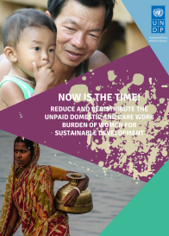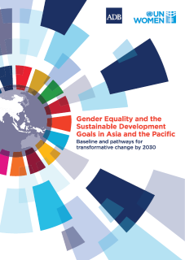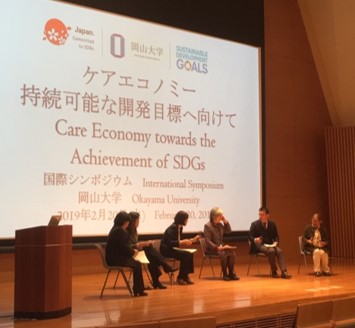Example
Research on Care Economy: Sustainable Economy and Society
Background
In Japan and elsewhere, women bear much of household chores and care of children, the elderly, and other household members at home. For this ‘unpaid care work,’ Japanese women, on average, spent 3 hours 28 minutes per day whereas Japanese men spent only 44 minutes (The 2016 survey on time use and leisure activities). While Japanese men spent longer hours for paid work than women, when the unpaid and paid work combined, women work longer hours than men. SDG Target 5.4 calls for recognizing and valuing “unpaid care and domestic work through the provision of public services, infrastructure and social protection policies and the promotion of shared responsibilities.” Care economy stemmed from reducing and redistributing unpaid care work will contribute to the development of sustainable economy and society through promotion of gender equality, job creation, poverty reduction among others.
Activities
Policy-oriented research studies were published as part of the Asia-Pacific SDG5 baseline report and by the UNDP in 2018. In February 2019, the international symposium on the care economy and sustainable development was organized thanks to the financial support from Okayama University Gender Equality Office. The event provided the space to discuss the care-centered democracy, economic and social policies. Next step will be an international, multi-disciplinary, joint research study with the speakers at the symposium on the care economy of Japan and other countries.



Representative
